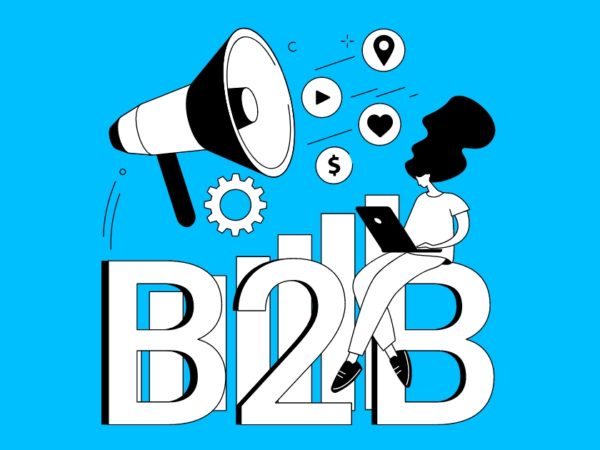Reputation management SEO controls how businesses appear in the market. This strategy also works as a damage control mechanism for reputation losses.
A reputed corporate research think tank, Weber Shandwick, reported in 2020 that 63% market value of your brand or company depends on reputation.
You can earn this brand reputation through extensive marketing, product innovations, satisfying customers, etc. But know this, it takes only a few minutes of a viral video or a simple public relations blunder by an employee to ruin it all.
You need to mobilize your reputation damage control team or a third-party agency that can fix the immediate losses. The recipe here is rapid search engine optimization (SEO) to counter the negativity with positive reviews and content.
Continue reading to learn this next-generation SEO tactic to save brands from disastrous moments.
SEO: Overview
As the name suggests, search engine optimization is manipulating the World Wide Web (WWW) search engines (Google or Bing) ethically to show your online presence at the top of any search results that mention certain keywords.
Let us consider you are into merchandise production and printing business. Every time your target audience searches for coffee mug printing, your website or eCommerce portal would come at the top of search result pages.
It can happen in two ways. Firstly, you are the only merchandise printer in the world. Search engines have no other option to showcase instead of you. This is ridiculously impossible.
Hence, the second option is SEO which could be the cause behind your website’s great performance on SERPs. Search engines find your website content, social media presence, product reviews, customer testimonials, etc., more authentic than your competitors. Thus you show up on the top.
Just like you can put a page on the top of SERP, you can do counter SEO to reduce the rank. For example, placing it somewhere on the 2nd or 3rd page of Google Search that users rarely visit.
To create business perception, overpower business rivals, and fix brand reputation, SEO experts use this tool inversely to enhance your online presence positively.
SEO: Objectives
Getting Traffic Organically
For any company, one of the top reasons behind doing SEO is to get more people to visit their landing page or website organically. Though different businesses have different goals, getting more traffic positively impacts other metrics.
Convert More Traffic
Turning more and more traffic and leads into customers is the aim of every business. SEO plays a big role in this conversion process. It uses various approaches through internal and external content to get more customers to choose your products or services.
Increase Time Spent on Pages
The more time people spend on your website, the higher chance they have to purchase your product and service. SEO optimization also means making it user-friendly so that people read what you have to say and get convinced before choosing your product.
Reduce Bounce Rate
If a user comes to your website and leaves without any interaction, your business will not get any visible benefit from it. Hence, the aim of SEO should be to influence them to take action and decrease the bounce rate.
Increase Domain Authority
Domain authority (DA) is essential in terms of the reliability of your company and the ranking of the web pages. With higher DA, your blogs will have a higher chance to rank, and users will tend to trust you more.
Though you can not control DA totally with SEO, it does influence domain authority to a great extent.
Backlink Building for Websites
A strong backlink profile for your business helps you outrank many big names in SERP. One of the major reasons businesses want SEO is to have high-quality and authoritative backlinks.
Maximize Page Speed
Flawless user experience is key to acquiring and retaining customers; for that, you need to have a fast and super-responsive website. Your website pages should load quickly and, upon clicking, must respond instantly. With proper SEO, companies can also have the best page speed available.
Ensure More Pages are Generating Traffic
Sometimes, you get leads and conversions only through a few landing pages. It is not ideal for long-term business strategy. With a good SEO technique, companies can diversify their traffic-generating pages.
Internal Linking Optimization
Internal linking between the different pages of your website is important for your visitors and the crawler bots. Another reason businesses should implement SEO is to have a suitable policy for linking internal pages.
This will make users spend more time on your website and send a positive signal to the crawlers.
Reputation Management: Introduction
Reputation management is a corporate practice of controlling what the public knows about your company. For obvious reasons, you would want only the good things to become available to your target audience, users, prospects, customers, and more.
Before the digital age, businesses relied on public events, administrative lobbying, conferences, charity fundraising events, etc., for reputation management.
But, today’s brand reputation management mainly controls company-related content on the internet. Promoting positive user reviews, good news coverages, positive influencer reviews, etc., on all channels and suppressing negative discussions is purely a reputation management tactic.
SEO plays a vital role in implementing effective brand reputation management tactics online. You can also use the online campaign data to run offline reputation-building or fixing schemes.
Now, you might wonder when is the right time for reputation management. This is a valid question. When you see the following signals, be confident that you need to mobilize your internal team or a hired agency to fix your popularity in the market:
- Organic traffic to your brand website is decreasing as negative reviews and gossip about your brand name rank on the SERP.
- Your PPC management software indicates that your paid ads are not getting enough clicks and landing page redirects though you have paid for the top position on Google Ads.
- If you are a public company, your equity shares suddenly show a downward price movement.
- The wholesale and retail outlets are stocking a reduced volume of your products or merchandise.
SEO: Novel Component
Conventional reputation management strategies involve the followings:
- Lobbying with industry leaders, investment groups, and big Wall Street players
- Challenging the negative news coverage in a court of law and getting a favorable ruling to take down the content
- Merging with another reputable brand and changing the product or services
- Auditing and investigating product performance issues and relaunching products with new offerings and assurances
The above methods are extremely costly. And, not much fruitful in the current situation as people read about your online on their phones, tablets, and computers.
Though you might come out clean of the product or service issue accusations, some of your users will be gone forever. You need to control the online content about your brand, especially when it suffers reputation damage.
Search engine optimization, especially reputation management SEO, is the unique and most effective weapon you can deploy to turn the tide.
SEO is a novel and effective reputation-fixing strategy because of the followings:
- An effective SEO project will create a long-term and rippling effect across media like Google SERP, Bing, Yahoo, local search, Google Business, social media, etc.
- Aggressive and ethical SEO can start ranking positive content related to your brand again and start correcting customer perspectives.
- It enables you to control the negative reviews in product or service review sites by ranking positive reviews first when users search for your products.
- SEO helps you maintain the sudden shift in brand status to positive from negative for the long term while you resolve any actual product or service issues.
- Continuous search engine optimization is a shield against bad actors who are always there to tarnish your reputation since your business rivals have hired them.
Reputation Management SEO: Working
If you think reputation management SEO lets you eliminate negative mentions, news, or reviews about your business, you are wrong. You can not use this approach to delete or modify bad reviews or news.
Actually, this form of SEO stresses outranking the negative or defaming content with branded mentions or positive pages. As positive reviews and news on your brand take all the higher positions in the Google SERP, the negative publicity about your brand is pushed lower in the search results.
Consequentially, people are less likely to find negative information about your business and, instead, come across positive and relevant news first. Here are some common methods of doing reputation management SEO:
- Have a verified company account on different review websites like Google My Business and Yelp.
- Actively responding to both positive and negative comments about your brand.
- Create quality content on your website, blog, and social media.
- Write relevant guest posts on authoritative websites with the author’s name, image, and company profile.
Suppress Negative Content
Negative content on your brand, product, service, or people creates a chain reaction of reputation damage. You lose your brand reputation on multiple grounds. Here is an example that will explain the concept clearly:
An eCommerce portal sold a premium smartphone to a customer, but they received something else in the box. The same thing happened to a few more consumers. Now, they all bombarded Twitter and Facebook with negative tweets and posts.
A rival hired a stinger to gather internal news about this mishap. They found that the seller and third-party fulfillment staff are defrauding the consumers. The rival company immediately publishes this online.
People would start sharing this article on many social media channels. The Google Search algorithm will pick it up as a trending topic. Now, other web bloggers will also start publishing gossip because this will surely increase website traffic.
The eCommerce website management should immediately appoint an expert agency for brand reputation management. They would resort to SEO and other content strategies to suppress the negative content.
Appropriate SEO tactics should push positive content on the top of the SERP while the negative ones would go to the second, third, fourth, etc., pages. As a result, users will now see less of the mishaps and more of the good things about that online shopping site.
BrandMentions
Do you want to be in control of the public image of your company? Choose BrandMentions, A reputation management tool for positive reputation building. It also assists you in shaping the public perception of your company.
<img alt="YouTube video" data-pin-nopin="true" data-src="https://kirelos.com/wp-content/uploads/2022/11/echo/hqdefault.jpg636364fd73705.jpg" height="360" loading="lazy" src="data:image/svg xml,” width=”480″>
This tool makes you know who is talking about you and what so that you can understand your image and protect it from negative campaigns. It also allows you to take immediate action when necessary and perform sentiment analysis to separate positive and negative mentions.
For the best user experience, this platform offers tools such as social mentions, hashtag tracker, brand tracker, and social media tracker.
Awario
With Awario, companies can monitor the conversations about their business in the internet world. This tool scans through social media, online news sites, blogs, reviews, videos, and forums to brand reputation management.
<img alt="YouTube video" data-pin-nopin="true" data-src="https://kirelos.com/wp-content/uploads/2022/11/echo/hqdefault.jpg636364fd7bc72.jpg" height="360" loading="lazy" src="data:image/svg xml,” width=”480″>
You will be the first to know whenever there is an important conversation about you online. It does not rely on a single third-party data provider; instead, it crawls more than 13 billion web pages daily and uses additional APIs.
By filtering the meaningful client mentions, you can easily form an understanding of your audience and track competition brand monitoring.
Final Words
SEO is the most effective brand/product/service marketing tactic when you need affordable solutions. Every business, ranging from small to medium, and startups resort to SEO to create a footprint in the market.
Then, if negative publicity bombards a business reputation suddenly, brand managers and marketing gurus resort to the same search engine optimization tactics to counter the negative remarks and bring positive news to the top of the SERP.
You can create your reputation management SEO strategy by leveraging the above article. Alternatively, rely on the agencies or tools that offer convenient services for a small fee.
You may also be interested in SEO vs. SEM—a great guide for digital marketers.



